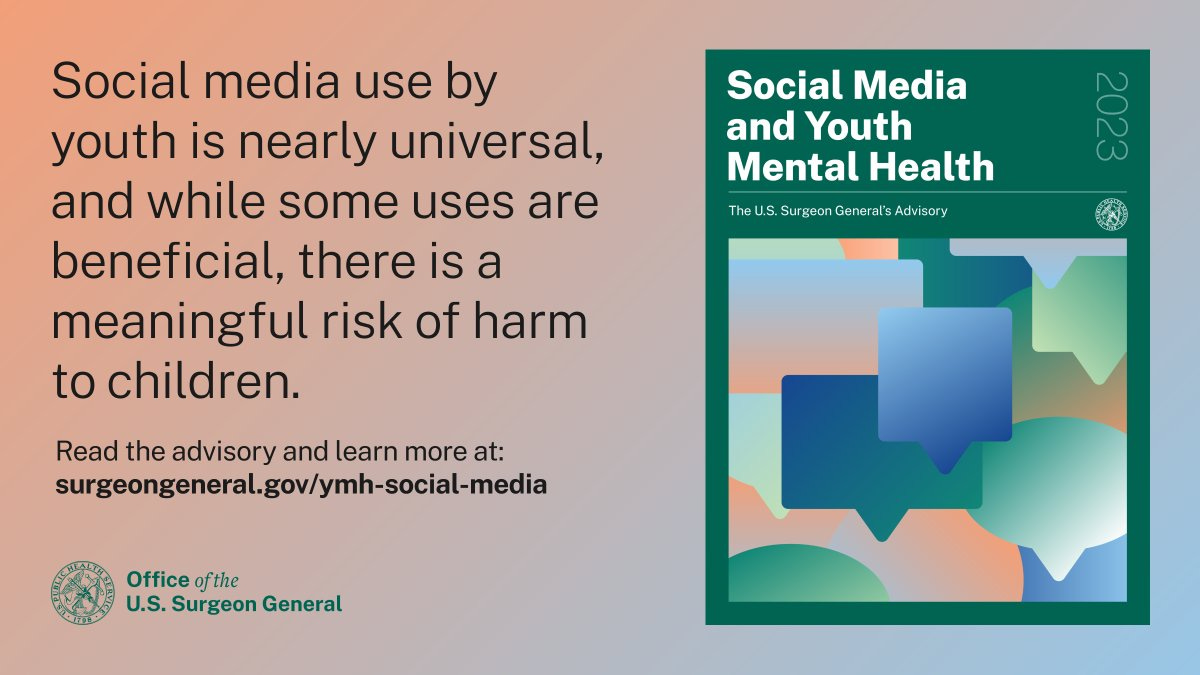Using Cookbooks In the Classroom
An innovative way to make nutrition lessons more engaging and inclusive. Big warnings about social media and about men's health. PLUS: What you need to know about sextortion.
Hello! A few updates and reminders:
Thank you for the VERY positive response to the announcement of TALK TO YOUR BOYS, my upcoming book with . Please keep sending us your suggestions of books to read, videos to watch, and people to interview.
We would love to help you with the challenges you’re facing with the boys in your life. You can ask for our advice - anonymously if you like - by using this simple form.
Trying to plan or improve health education in your school? I keep a curated list of excellent resources on my website, MrHealthTeacher.com.
San Francisco Unified School District, where I work, has several openings for health ed teachers for 2023-24. We’d love to hear from potential candidates - even folks who don’t yet have a California teaching credential. Feel free to reach out to me with any questions.
Please share this newsletter with teachers, social workers, nurses, counselors, therapists, writers, and parents. I appreciate it!
Now, let’s get into it…
Curriculum and Resources
Using Cookbooks in Health Class
“When my students enter our classroom on the first day of the nutrition unit, they immediately see two tables covered in cookbooks. Lots and lots of cookbooks,” writes Sarah Gietschier-Hartman.
”As health educators, we need to move away from nutrition lessons that demonize foods and instead, teach our students about things like viewing food as a source of joy and nourishment, the importance of eating together with their families, and the effect food can have on our physical, mental, and social health. Bringing cookbooks into my classroom has been the perfect place to start having these conversations with my students.”
How to Help Students Resist Their Phones and Develop Better Digital Habits
Is it possible to change the way students use and relate to their cell phones? Tyler Rabin takes on this question in a new Edutopia essay:
”It’s crucial that educators make it extremely difficult for students to access their phones, as a first step in rewiring how students respond to boredom or discomfort.
But even after we’ve removed phones and attempted to break the habit, the expectation that this behavioral change will stick long-term is foolhardy if we don’t focus on the cognitive landscape in our classrooms.”
Wellness
Surgeon General Warns That Social Media May Harm Children and Adolescents
“There are ample indicators that social media can also have a profound risk of harm to the mental health and well-being of children and adolescents.” That’s the takeaway from a new report from U.S. Surgeon General Dr. Vivek Murthy.
“Children and teens don't have the luxury of waiting years for us to protect them from the potential harms of social media,” Murthy says. “My new Advisory outlines the steps we can take TODAY to mitigate the risks to their mental health.”
Does Weed Help With Anxiety or Cause It? Here’s What Experts Say.
In this Washington Post article, Teddy Amenabar explores how cannabis can “turn up the volume” on everything in the brain, including our anxiety
Men in the U.S. Are in Trouble
When two thirds of young men feel that “No one really knows me,” as the findings in the inaugural State of American Men report show, they reveal the fragility of their connections and relationships. The report is accompanied by “a call to all of us to build and support healthy, connected versions of manhood for the good of all.”
Concerns about men also come up in this episode of the Post Reports podcast, where Tara Parker-Pope talks about why men are dying, on average, nearly six years sooner than women, and what we can do about it.
Keep On Learning
What Can We Do About Sextortion
This new Amaze.org video focuses on sextortion, sometimes called online blackmail. It’s when a person threatens to share naked or sexual images, private or embarrassing information online, or threatens to harm someone if a person doesn’t follow demands. This video was highlighted in this recent two-part training for teachers, which you can view here:
Understanding and Preventing Sextortion with AMAZE & THORN - Day 1
Understanding and Preventing Sextortion with AMAZE & THORN - Day 2
News
One in Five Deaths Among Young Californians Tied to Fentanyl (The Guardian)
Drug overdoses now kill two to three times as many people in California as car accidents, according to data compiled by the consulting group California Health Policy Strategies. Since 2017, deaths related to the synthetic opioid, which is 50 times stronger than heroin, have increased 1,027%. READ MORE
For One Group of Teenagers, Social Media Seems a Clear Net Benefit (New York Times)
The surgeon general’s warning Tuesday about social media’s “profound risk of harm” to young people included a significant qualification. For one group in particular — the growing share of young people who identify as lesbian, gay, bisexual, transgender and queer — social media can be a lifeline, researchers and teenagers say. READ MORE

Teenagers Resent Social Media. They Also Resent Efforts to Take It Away (New York Times)
In Manhattan, one high school freshman said he was trying to cut down on scrolling through TikTok, but questioned whether age restrictions on social media use could ever effectively stop tech-savvy teenagers. Another senior from Queens said social media was essential for socializing but lamented its transformation from an enjoyable activity into an obligation. READ MORE








